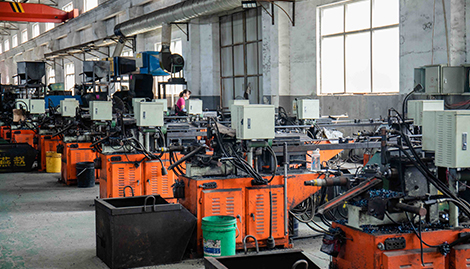oem stud bolt astm a193 gr b7
Nov . 12, 2024 08:15 Back to list
oem stud bolt astm a193 gr b7
Understanding OEM Stud Bolts and ASTM A193 Gr B7 An Overview
In the realm of industrial manufacturing, the importance of robust and reliable fastening components cannot be overstated. Among these, stud bolts play a crucial role, particularly in high-strength applications. This article delves into OEM (Original Equipment Manufacturer) stud bolts, with a focus on ASTM A193 Grade B7 specifications, highlighting their significance, characteristics, and applications.
What are OEM Stud Bolts?
OEM stud bolts are specialized fasteners designed and manufactured for use in specific equipment or machinery by the original equipment manufacturers. These bolts are integral to ensuring the structural integrity and operational efficiency of mechanical systems. Unlike generic fasteners, OEM stud bolts are produced to meet specific design specifications and performance criteria. This precision in manufacturing not only enhances the reliability of the equipment but also extends its lifespan, making OEM components essential in various sectors, including oil and gas, power generation, and heavy machinery.
Understanding ASTM A193 Gr B7
ASTM A193 is a standard specification set by the American Society for Testing and Materials (ASTM) for alloy-steel and stainless-steel bolting materials for high-temperature or high-pressure service, as well as other special applications. Within this specification, Grade B7 refers to a specific type of alloy steel, usually made from chromium-molybdenum steel. This composition provides excellent mechanical properties and corrosion resistance, making it suitable for demanding environments.
Stud bolts made to ASTM A193 Gr B7 specifications are typically heat-treated to improve strength and toughness. These bolts are often used in conjunction with nuts that conform to ASTM A194 Grade 2H, which complements their strength requirements. The combination of these materials ensures a dependable and robust fastening solution for critical applications.
Key Characteristics of ASTM A193 Gr B7 Stud Bolts
oem stud bolt astm a193 gr b7

1. High Strength The primary feature of ASTM A193 Gr B7 stud bolts is their high tensile strength. These fasteners can withstand significant loads and stress, making them ideal for heavy-duty applications.
2. Heat and Corrosion Resistance The alloying elements in B7, including chromium and molybdenum, impart heat and corrosion resistance, enabling these bolts to perform well in harsh environments, such as chemical processing plants or offshore oil rigs.
3. Versatility Gr B7 bolts can be utilized in various applications, including power plants, refineries, and petrochemical industries, where reliability is paramount.
4. Dimensional Standards ASTM A193 also outlines strict dimensional standards for stud bolts, ensuring compatibility with a range of mechanical components.
Applications of OEM Stud Bolts
OEM stud bolts manufactured to ASTM A193 Gr B7 specifications find numerous applications across different industries. In the oil and gas sector, they are commonly used in pipelines, reactors, and pressure vessels due to their ability to withstand high pressures and temperatures. The power generation industry relies on these fasteners for gas turbines, steam generators, and other critical components. Additionally, in the construction and heavy machinery markets, B7 stud bolts are employed to secure structures and equipment that require both strength and durability.
Conclusion
In conclusion, OEM stud bolts, particularly those adhering to ASTM A193 Gr B7 standards, are vital components in the landscape of industrial manufacturing. Their high strength, heat and corrosion resistance, and versatility make them suitable for a wide range of demanding applications. By utilizing OEM components, industries can ensure the longevity and reliability of their machinery, ultimately leading to enhanced operational efficiency and safety. When selecting fasteners for critical applications, understanding these specifications and their implications is essential for achieving optimal performance in any industrial setting.
Latest news
-
High-Quality Panel Stud Bolt Reliable Panel Stud Bolt Factory & Suppliers
NewsJul.08,2025
-
High-Precision Fine Thread Locknuts Manufacturer & Supplier Custom Solutions
NewsJul.08,2025
-
PH Imperial Stud Bolt – High Strength Fasteners from Leading Supplier & Factory
NewsJul.07,2025
-
High-Quality Allen Wrench Bolts Leading Factory, Company & Suppliers
NewsJul.07,2025
-
Wholesale Ball Stud Bolt - High Quality Supplier & Factory Price Reliable Wholesale Ball Stud Bolt Company
NewsJul.06,2025
-
High-Strength Alloy Bolts Manufacturer & Supplier Quality Alloy Fasteners Factory
NewsJul.06,2025
